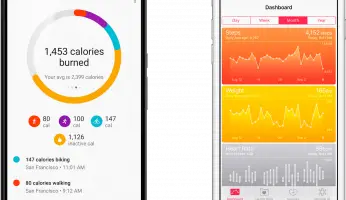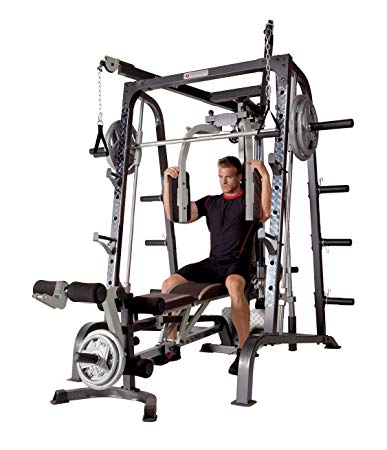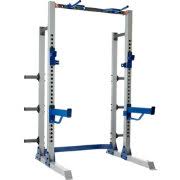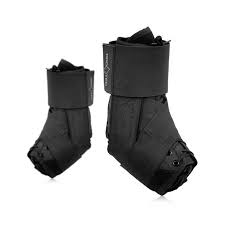Deadlift Variations – Conventional, Sumo, and Romanian
A deadlift is a type of weight-lifting exercise that strengthens the lower body muscles, mainly the hamstrings, quadriceps, glutes and lower back. Building the muscles not only increases one’s strength but also adds to stability. The compound exercise builds up the muscles used daily to lift and bend. Therefore, it is essential to utilize the proper form when you are performing the exercise. Otherwise, you can risk injury to the hamstrings or lower back.
The Proper Stance
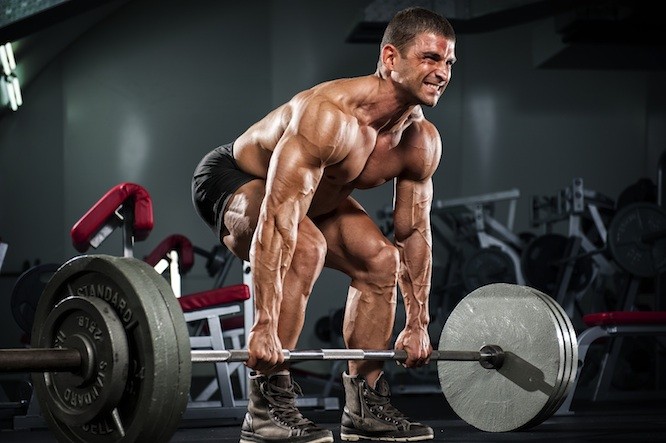
The deadlift is typically performed with the use of a barbell although some weightlifters may use a set of dumbbells. In this article, the use of the barbell will be covered in describing the proper form and technique. To initiate the exercise, place the barbell down on the ground in front of you as you stand with the feet shoulder-width apart.
Hold onto the bar by tightening your core and bending your knees. Then pick it up using an overhand grip. The hands at this juncture should be placed just a bit wider than shoulder-width. Slowly extend the knees and hips as your return upright.
Then lower the bar to floor, with a slight push back of the hips and bend of the knees. Never round your spine and lock the knees during the activity. The barbell should be maintained about one inch from the body when lifting the weight.
The deadlift itself is a retro form of bodybuilding, used during the days when weightlifters lifted as much as they could in any manner they could muster. As a result, three main variations of the exercise have evolved over time.
Deadlift Variation 1: The Sumo Deadlift

source: bodybuilding.com
Besides the conventional deadlift that was just covered, a sumo deadlift, also known as a wide stance deadlift, is practiced as well. This form of a deadlift mimics the stance assumed by a sumo wrestler. Using the variation alters the emphasis of the lift and causes the legs and hips to work more and the back to work less. For many bodybuilders, the sumo lift is easier to perform than the conventional deadlift.
When performing the sumo deadlift, focus on keeping the knees placed wide out while pushing your feet to the sides. Bring the hips forward at the same time. This type of stance increases your leverage, all which permits the lifting of additional weight.
Deadlift Variation 2: The Romanian Deadlift
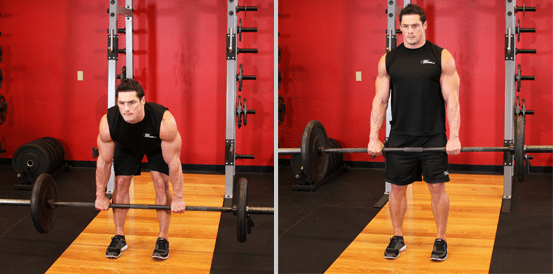
The Romanian deadlift, another variation, is also referred to as the stiff leg deadlift. Using this deadlift places more emphasis on the lower back and hamstrings, which makes this form of the exercise better suited for lighter barbell weights and higher repetitions. The bodybuilder keeps the legs almost straight throughout the movement, slightly bending the knees to reduce any tendon stress.
ONE FINAL DEADLIFT TIP [MAINTAING GRIP]
In order to obtain success in any sort of deadweight lifting, the grip of the weightlifter needs to be strong. If he cannot keep hold of the bar, then he won’t be able to lift the weight, regardless of how strong he is in the hips or legs. The chalk that holds the grip is known as magnesium carbonate. Not only does the substance dry up any sweat, it increases the amount of friction between the hands and the bar. The deadlift is one of the few strong lifts exercises that does not require a power rack. However, if you are interested in the other strong lifts, such as the over head press or squat a power rack is a safety necessary for any heavy weight. You can learn more about how to buy the right power rack in our guide at this link.

![5 Different Types of Squats [FOR JAW DROPPING LEGS]](https://garagegymbuilder.com/wp-content/uploads/bfi_thumb/6292-6qo1ozm8c1vkfxtw9455ix9sznjoy60vu13l6skswhr.png)

